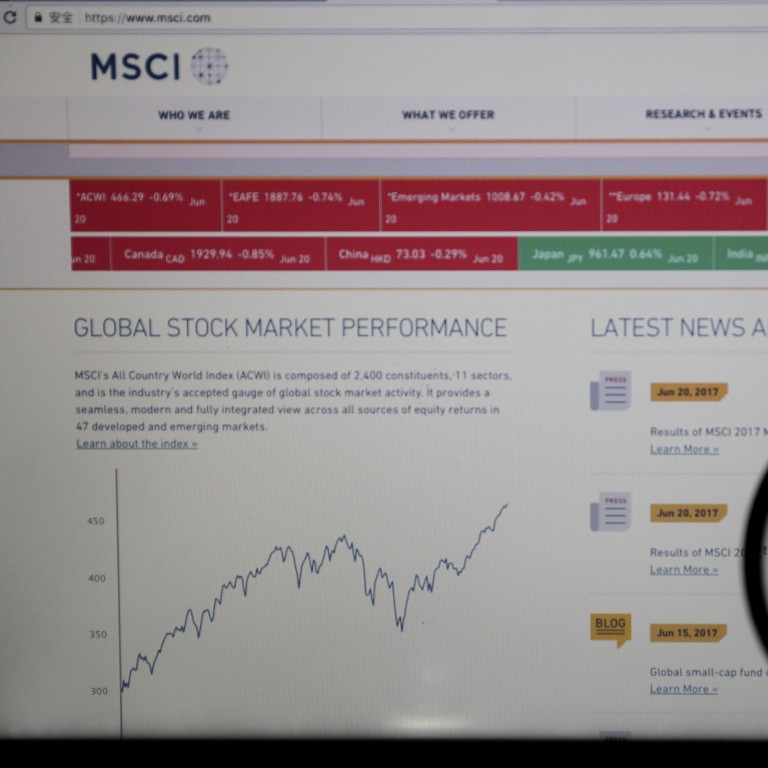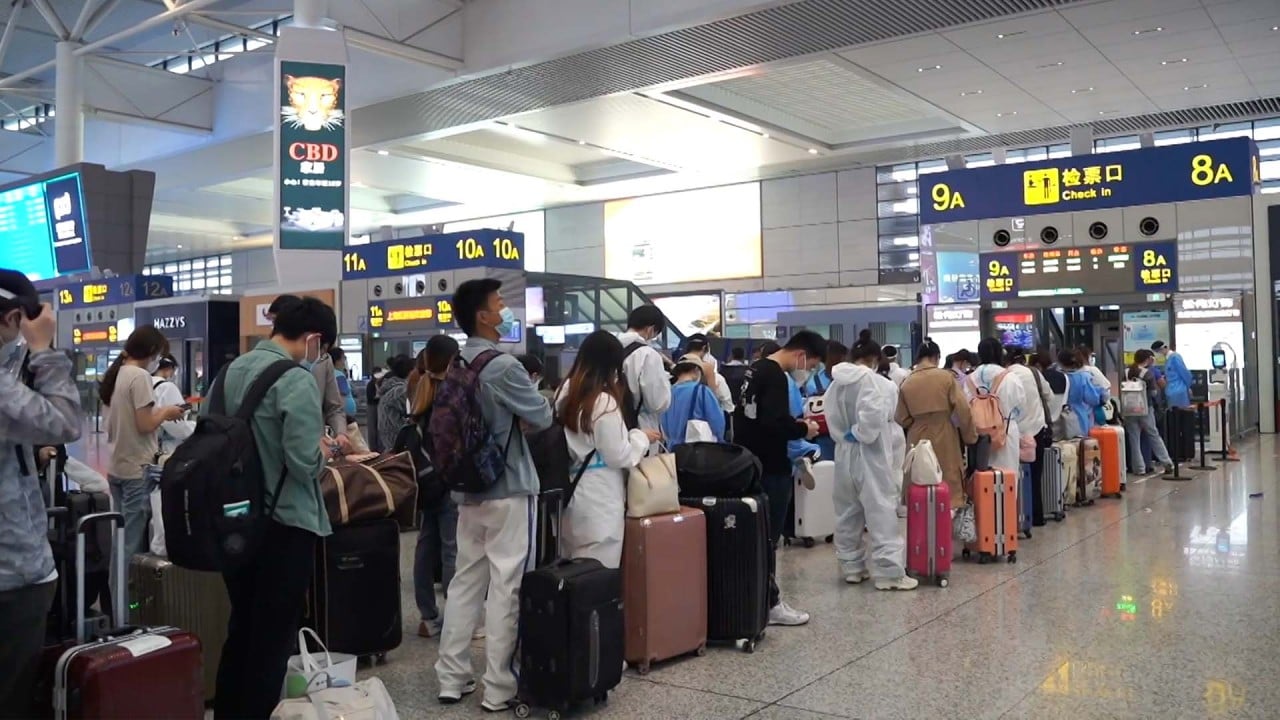
Chinese tech-stock rebound meets extended cutbacks in price targets as MSCI index loses US$2.3 trillion of value this year
- Analysts have continued to trim the upside potential of top tech stocks after the latest round of earnings reports
- The MSCI China Index has corrected by 20 per cent this year, leaving investors US$2.3 trillion poorer
Analysts have trimmed the 12-month targets for the top 10 Hang Seng Tech Index heavyweights by 8.5 per cent on average since May 1 as the earnings season unfolded, according to Bloomberg data. That follows a 15 per cent cut in the first quarter this year.
They dialled back Alibaba Group Holding’s potential price upside by 4.8 per cent to HK$150.02 and Tencent Holdings’ potential by 8.7 per cent to HK$469.01 in the past one month. JD.com’s target was lowered by 3.6 per cent to HK$336.38.
The adjustments reflect a market suffering from weakening corporate earnings outlook as China trades growth for a zero-Covid policy to combat the Omicron wave. That no-nonsense approach has led to partial or total lockdown in 40 mainland cities including Shanghai and Shenzhen, slamming output and employment.
“Strict Covid-19 restrictions are pushing earnings recovery further out into the second half and 2023, especially for consumption-related businesses like digital advertising and e-commerce,” said Vey-Sern Ling, senior Asia tech equity adviser at Union Bancaire Privee. “The situation can improve if the government announces strong stimulus measures.”
Almost 90 per cent of all Chinese onshore and offshore firms have reported their earnings for the March quarter through May 27, according to Goldman Sachs. Earnings rose by an average of 2 per cent, trailing consensus estimates of 8 per cent for MSCI China Index.
The MSCI China Index, which counts Alibaba, Tencent and Meituan as the biggest among 744 constituents, has lost one-fifth of its value this year, a technical bear market. Some US$2.3 trillion of capitalisation was lost, on top of US$542 billion when the gauge slumped 21.6 per cent last year.
This month, analysts at Goldman Sachs, UBS and others have trimmed their 2022 growth forecasts for China to significantly below the official 5.5 per cent target. Some private banks said the economy could contract in the current quarter, putting the current consensus of 3.3 per cent expansion at risk.
Investors trying to catch a falling knife have been forewarned by steep cuts in price targets for more than a year. None has been more pronounced than the multiple cuts on Alibaba even since the first stock bear, Manuel Muhl of DZ Bank, downgraded the stock in July 2020.
The cracks are wider outside the top five stocks. Smartphone maker Xiaomi’s target was slashed 33 per cent in May, following a 26 per cent cut during the first quarter.
Some long-term investors who have the stomach to sit through the tech carnage, and also ploughed more cash into the stocks, may be unperturbed by the short-term gyrations. The reward outweighs risk as the regulatory environment improves after months of crackdown, Ling of UBP said.
“When there is great market scepticism and slowing economic growth, we often see very good investment opportunities arise given that much of the bad news might already be priced in,” said Martin Hennecke, head of Asia Investment Advisory at wealth management firm St James’s Place.
Valuations remain attractively low, while top policymakers have made it clear that the priority of their policies firmly lies with supporting growth, he added.



